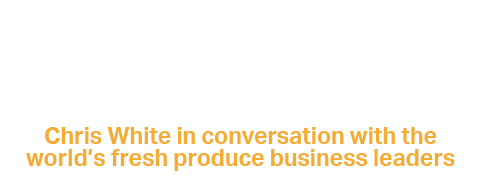Ksenia Gorovaya, managing director of St Petersburg-based Crisp Consulting, was in the eye of the storm in the summer of 2014, when Russia decided to ban a range of food imports – including fresh fruit and vegetables – from the EU, US, Australia, Norway and Canada.
Six years on, with the blockade still very much in place, she talks to Chris White about the ongoing impact of that decision on the country’s fresh produce import business, part of which has refocused on the former Soviet republics as well as places like Iran, and also on its local, domestic supply.
“Russia still imports quite a lot, but crops that can be grown locally are gaining more share on retail shelves,” she reveals in the latest episode of Fruitbox. “For example sufficiency for potato production is close to 95 per cent.”
Russia’s self-sufficiency in the commercial tomato sector, she adds, expanded from 25 per cent to 50 per cent. Within the past five years, about 1,000ha of greenhouses were launched both by the governmental and private investments, while retailers themselves have been investing in their own production.
“Magnit now aims to produce up to one-third of their tomato assortment in their own greenhouse facilities, which is an example of how rapidly it is going,” Gorovaya points out.
Hosted by Chris White in London, Fruitbox now attracts a big audience across the global fruit and vegetable business that tunes in twice a week to hear exclusive interviews and expert analysis.
Produced by Fruitnet Media International, the show is essential listening for everyone in the fresh produce industry.
To find out how you can tell your story on Fruitbox, emailchris@fruitnet.com.
To learn about sponsorship and advertising opportunities, emailadvertising@fruitnet.com.
The latest episode of Fruitbox, as well as all previous episoides, can be found on any of the following podcast services:
| Apple Click here to visit Apple Podcasts | |
| Google Click here to visit Google Podcasts | |
| Overcast Click here to visit Overcast.fm | |
| Pocket Casts Click here to visit Pocket Casts |
Topics
- Apples
- Audio
- Australia
- Austria
- Belarus
- Belgium
- Bulgaria
- Canada
- Cyprus
- Estonia
- Europe
- Finland
- France
- Fruitbox
- Germany
- Greece
- Ireland
- Italy
- Kiwifruit
- Latvia
- Lithuania
- Media
- Netherlands
- North America
- Norway
- Oceania
- Podcasts
- Poland
- Portugal
- Potatoes
- Production & Trade
- Romania
- Russia
- Salad vegetables
- Spain
- Stonefruit
- Sweden
- Tomatoes
- Ukraine-Russia crisis
- United States




